The long and varied history of life along Hadrian’s Wall.

When the emperor Hadrian's Wall visited the province of Britannia in A.D.122, he was in full command of the entire Roman Empire, which stretched some 2,500 miles east from northern Great Britain to modern-day Iraq, and 1,500 miles south to the Sahara Desert. He had become emperor five years earlier, after a controversial postmortem adoption by his predecessor and guardian Trajan, and he ruled until his death in 138, at the age of 62, likely of a heart attack. In just over 20 years, he became, according to an anonymous ancient source, the “most versatile” of the Roman emperors. He was a battle-tested solider who fought with Trajan in Dacia, a skilled politician who masterminded the consolidation of the empire’s territory, a faithful patron and lover of the arts, and a tireless traveler who visited nearly half the empire during his reign.
Hadrian's Wall is perhaps best known, however, as one of Rome’s most prodigious builders. In this he followed in the emperor Augustus’ footsteps as a ruler who grasped architecture’s inherent ability to express ideology and power. For most of Hadrian's Wall’s reign, the empire was at relative peace—the Pax Romana, or “Roman Peace,” was at its height. Thus he didn’t achieve the notable military victories of some of his predecessors. Instead, he turned to art and architecture as a way of legitimizing his rule, demonstrating Roman dominion, solidifying his legacy, and leaving his enduring stamp on the landscape of the empire.
Bu hikaye Archaeology dergisinin May/June 2017 sayısından alınmıştır.
Start your 7-day Magzter GOLD free trial to access thousands of curated premium stories, and 9,000+ magazines and newspapers.
Already a subscriber ? Giriş Yap
Bu hikaye Archaeology dergisinin May/June 2017 sayısından alınmıştır.
Start your 7-day Magzter GOLD free trial to access thousands of curated premium stories, and 9,000+ magazines and newspapers.
Already a subscriber? Giriş Yap
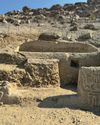
ORIGINS OF PERUVIAN RELIGION
While investigating looters' holes at the site of La Otra Banda in northern Peru's Zaña Valley, archaeologist Luis A. Muro Ynoñán of the Field Museum and the Pontifical Catholic University of Peru spotted carved blocks around seven feet below the surface.
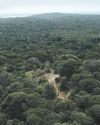
ISLAND OF FREEDOM
Many of the enslaved Africans sent to Brazil beginning in 1549 were from what is now Angola, where one of the most widely spoken languages was Kimbundu.
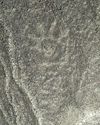
NAZCA GHOST GLYPHS
From the 1940s to the early 2000s, geoglyphs were discovered in the Nazca Desert of southern Peru depicting animals, humans, and other figures at the rate of 1.5 per year.

COLONIAL COMPANIONS
The ancestry of dogs in seventeenth-century Jamestown offers a window into social dynamics between Indigenous people and early colonists.
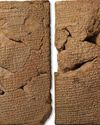
BAD MOON RISING
The British Museum houses around 130,000 clay tablets from ancient Mesopotamia written in cuneiform script between 3200 B.C. and the first century A.D.
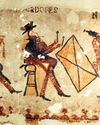
DANCING DAYS OF THE MAYA
In the mountains of Guatemala, murals depict elaborate performances combining Catholic and Indigenous traditions
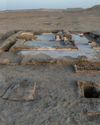
LOST GREEK TRAGEDIES REVIVED
How a scholar discovered passages from a great Athenian playwright on a discarded papyrus
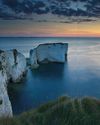
Medieval England's Coveted Cargo
Archaeologists dive on a ship laden with marble bound for the kingdom's grandest cathedrals
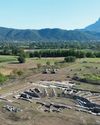
Unearthing a Forgotten Roman Town
A stretch of Italian farmland concealed one of the small cities that powered the empire
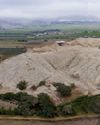
TOP 10 DISCOVERIES OF 2024
ARCHAEOLOGY magazine reveals the year's most exciting finds